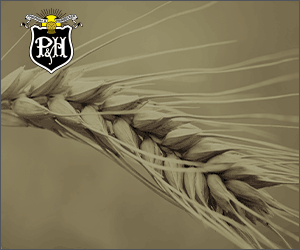The Big Picture: The good food gap
WHAT NON-FARMERS ARE SAYING ABOUT FARMING
AS TALK OF a national food policy becomes more common place, there are an increasing number of players weighing into the debate of what such a policy might look like. Politicians, researchers, experts, farmers and non-farmers alike all have an opinion on whether or not we need a policy and what should it should include.
One recent report released by the Metcalf Foundation, which funds research in the areas of the environment, the performing arts and low-income communities, outlines a serious issue which they call the Good Food Gap.
Menu 2020: Ten Good Food Ideas for Ontario is a report written by staff from Sustain Ontario – The Alliance for Healthy Food and Farming. The report explains that the good food gap is “the fact that farmers find it difficult to make a living growing food, and consumers find it difficult to make the good food choices they want to make.”
Although the report did consult with farmers and some farm organizations, it includes more non-farm stakeholder input than one normally expects with a report on farming. The focus of looking at farming, food and health at once is somewhat novel in Ontario and it piqued the interest of the urban media.
challenging for grain farmers
Reviewing the report from a grain farmer perspective is both intriguing and challenging. The report reflects many of the concerns of grain farmers including low commodity prices and rising farm debt. However, the solutions presented in the report focus heavily on local markets, alternative forms of agriculture and government intervention. In fact, the strong export market that grain farmers often hail as a success is denounced as a contributing factor in creating the good food gap. Also criticized is the large-scale, conventional type of agriculture that many grain farmers practice.
While you may disagree with some of the report’s assumptions and criticisms, it is still valuable for the agricultural industry to take a close look as some of the solutions presented. One specific solution that grain farmers may have particular interest in is the idea that Ontario should “harvest the whole value of ecological services from agriculture.” The solution deals with the on-farm challenge of being good stewards of the land. The report emphasizes the importance of recognizing the value of farms from an environmental perspective and suggests that these stewardship services should be rewarded.
Although programs through the Environmental Farm Plan and the Ontario Soil and Crop Improvement Association already offer funding for farmers completing land stewardship projects, the report recommends finding a more extensive way to value these environmental activities.
starting the discussion
Despite the fact that the report does not exactly sing the praises of modern agriculture, instead focusing on small-scale local production, it is still a good indicator that people in Ontario are becoming more aware of the challenges facing farmers.
The entire report can be found online at www.metcalffoundation.com. •























